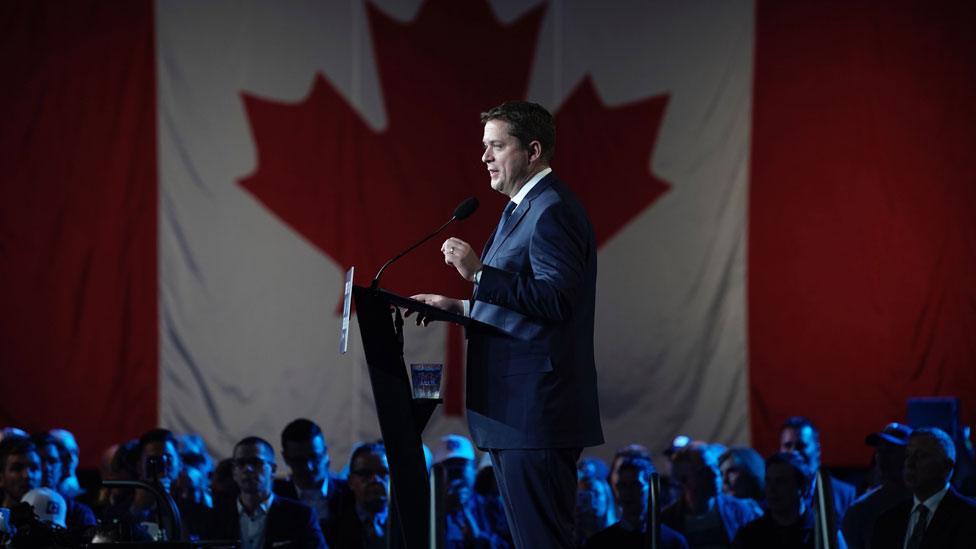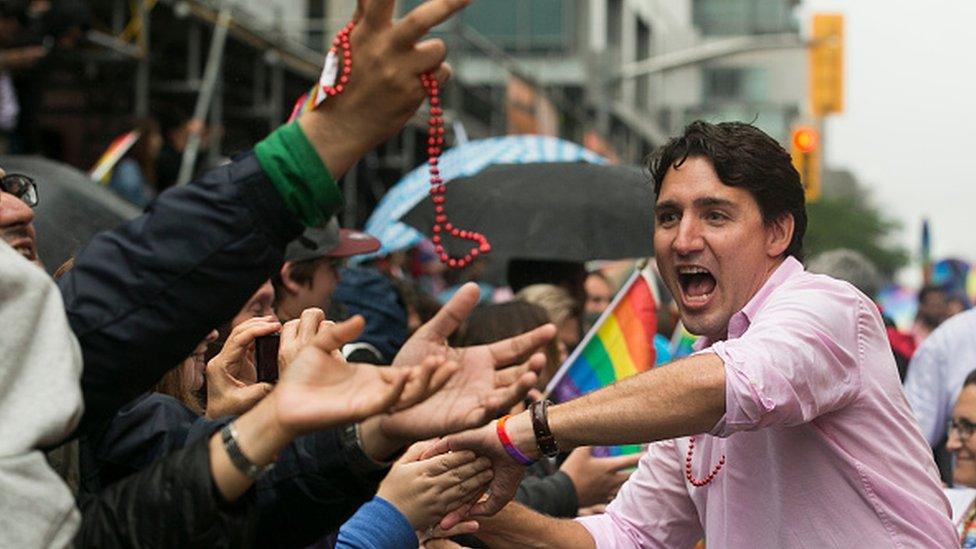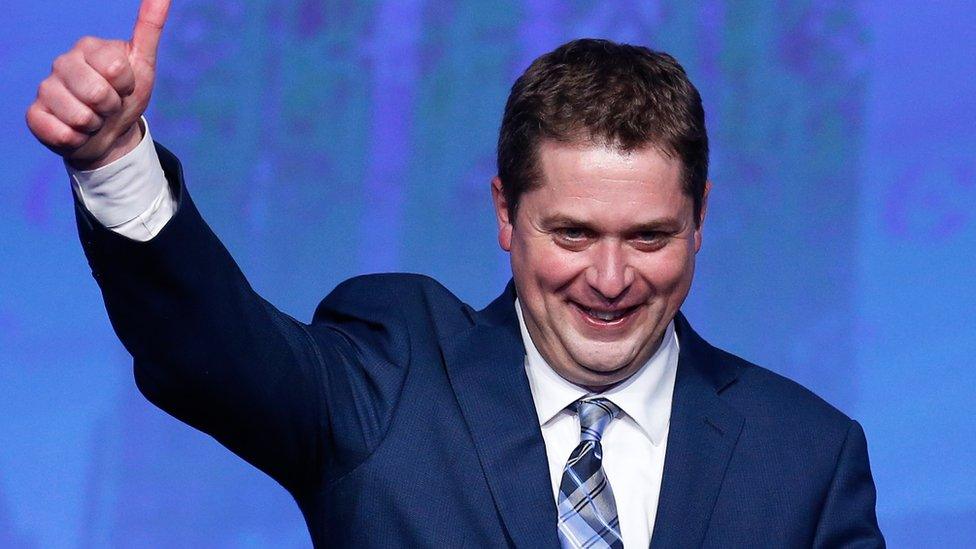Canada election: Where it went wrong for Conservatives
- Published

Scheer gives his concession speech in Regina
Canada's Conservative Party have failed to unseat Prime Minister Justin Trudeau and his Liberal Party, despite hard questions about his record in government. So what went wrong?
It was certainly not a victory but neither was it a clear defeat for the Conservatives on election night.
The country elected a Liberal minority government with 157 seats out of 338. The Conservatives got 121.
But the Conservatives edged out the Liberals in the popular vote - 34.4% to 33%.
"Let's remember this feeling, coming close but falling just short," Conservative leader Andrew Scheer told supporters in Regina, Saskatchewan.
The party made some gains, sweeping the prairies and picking up seats in New Brunswick, Ontario and British Columbia. That leaves the Conservatives with 22 more seats now than they had in 2015.
There was a point in the campaign when it seemed they would win.
With scandals like SNC-Lavalin and revelations about blackface haunting him, Mr Trudeau had never been weaker. Days before the election, some polls projected the Conservatives would win the most seats.
Now the party will be outflanked on the left.
The New Democratic Party, with 24 seats, has said it will not work with the Conservatives.
And the Green Party, with three seats, refuses to support any oil or gas pipelines - key issues for many in the west, where oil and gas industries make up a large part of the economy.
It is a no-win scenario for many, says Adrienne Ivy, a rancher from Saskatchewan who attended the Conservatives' viewing party on election night.
"The idea of a minority government is a little unsettling for everyone since it's the unknown," she said.
"Western Canada is feeling extremely alienated already, and the results we're seeing today only further that to a higher degree."
"Canadians voted in favour of a progressive agenda" - Justin Trudeau's victory speech
The loss comes at a time when the Conservative Party is trying to prove that a centre-right party can govern, as populist or right-wing parties win power elsewhere.
Mr Scheer favoured economic arguments over ideological ones, campaigning on the promise of lower taxes and balancing the budget but avoiding divisive social issues.
Although as a devout Roman Catholic he opposes gay marriage and abortion personally, he says he would not bring the issues to a vote if the Conservatives were in power.
Most notably, in comparison with his conservative foreign counterparts, Mr Scheer has avoided the kind of anti-immigrant rhetoric that propelled the rise of Donald Trump in the US.
Devinder Shory, a former MP from Calgary, Alberta, who was born in India, says there is no reason why immigrants should not be part of a Canadian conservative movement.
"I believe the Canadian values and all the ethnic values, the new immigrant values are Conservative values," he said. "We believe in working hard and lowering taxes.
When then-Conservative MP Maxime Bernier criticised Canada's "extreme multiculturalism", Mr Scheer censured him, leading Mr Bernier to quit the party to form the People's Party of Canada.
That gamble did not pan out for Mr Bernier, who lost his seat and failed to get a single candidate elected.
But that does not mean there is no populist movement in Canada.
How important is bilingualism on the campaign trail?
In Ontario, the Conservative provincial government of Doug Ford toppled a long-held Liberal government with promises to repeal progressive sex education in public schools, cut the fat in government and stem the tide of refugees crossing at the US border.
Mr Scheer did not go to Mr Ford for provincial campaign support, which many speculated was because he was afraid Mr Ford's message would scare moderate voters.
But there are voters in the party who might like to see some of his style make its way back.
"I'm tired of being called names just because I disagree with uncontrolled borders," says mother Melanie Burns, who recently moved from Ontario to Saskatchewan to raise her four-year-old in a more conservative province.
Now the party must decide how much to listen to people like Melanie and Mr Ford, or whether the centre can hold.
- Published30 August 2019

- Published28 May 2017

- Published23 September 2019
